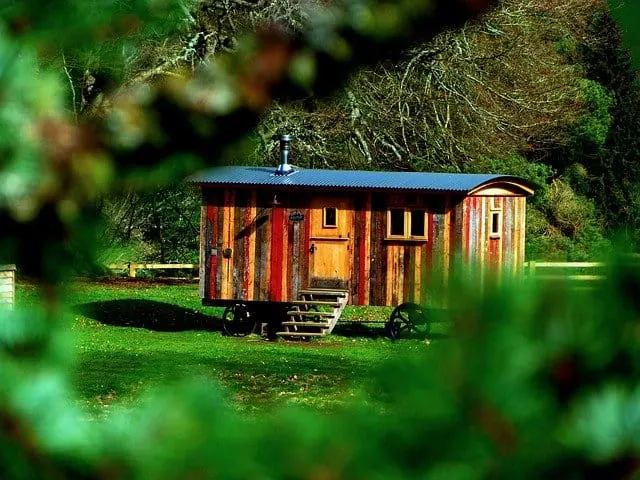
If you’re looking to follow a more sustainable lifestyle that helps you connect more to the earth, off-the-grid living might be ideal.
But while it offers unique benefits, it can be tricky. But with the right mindset and preparation, you can easily do so. Below are some tips to keep in mind to ensure things go successfully.
6 Tips for Off-the-Grid Living
1. Research a Good Location
It’s easy to get excited about your new space and quickly pick out a space without truly researching it. But while this might take time, getting to know potential sites is crucial if you want to succeed. For instance, certain crops might not grow well in certain areas, or you might find that the land is too difficult to build on. You’ll also need to consider natural concerns in states, like if drought is a consistent problem.
Apart from this, make sure to check local laws regarding off-the-grid living. While most are friendly to it, some areas require certain aspects to be connected to the grid.
It’s also good to check the price of land. The price per acre could be very expensive, depending on where you want to live. This could make it harder for some to get started if you’re on a strict budget, especially since many off-the-grid locations don’t always qualify for loans.
2. Consider Raising Poultry
Raising poultry can be an important element of off-the-grid living, whether for meat and eggs or natural pest care and fertilizer.
One of the first things to consider is the type of poultry you want to raise. While chickens are usually the first to come to mind, you might also try raising turkeys, ducks, geese, guinea hens, or quail. Depending on their needs, you might need to have more space and certain types of food available for them to stay healthy.
To make things easier, a portable chicken coop might be ideal. You can move this wheeled device to different areas encouraging flocks to mingle in them. This helps you keep better track of where they are and manage where and how much they eat.
These coops are extremely durable thanks to their aluminum structure, which can withstand harsh weather elements and heavy usage. Better yet, they’re easy to assemble, so you can quickly get to work using them.
You’ll find the coops also come with a variety of features, like watering and feeding systems and interior roosting areas. This makes your job easier and leads to happier and healthier flocks.
3. Obtain Good Power Sources
Since you won’t be using the grid, you need to make sure that you have other good power sources, like solar panels, available. Other important power sources include wind and water.
Unlike the grid, which provides alternating current, these usually provide your home with direct current, so you’ll get constant voltage. While it can be a little more intense than alternating currents because of its constant flow, it does allow you to reach longer distances which can be useful on your homestead.
Besides getting energy to power devices and tools for your homestead, you’ll also want to make sure these sources can help keep you cool or warm during seasons. This is especially so if you plan to live in a frigid climate where living without heat could be dangerous.
4. Get a Satellite Phone
Even though you might live off the grid, you’ll still want to have at least one means of communicating with others when needed.
Unlike cellular phones, satellite phones connect to nearby satellites rather than towers. Because of this, you can reach locations better than cell phones. While you don’t need to use it all the time, having one on hand can be essential for navigating and emergency concerns.
5. Use Rain Barrels
Rain barrels collect rain as it falls, usually from roof downspouts. While they can be a little pricey depending on the type you get, they ensure you have water for gardens and drinking.
These tools come in a variety of sizes (most hold anywhere from 40-60 gallons) and are simple to use. All you need to do is place one under the downspout, so the water flows into the container. You can then connect a hose to the barrel’s extension to transport the water where it’s needed.
6. Invest in Quality Seeds
If you’re living off the grid, you’ll likely grow your own food. So before officially starting this new adventure, make sure you have plenty of seeds on hand for food and other elements. Whether it’s vegetables for eating or growing fibers and dyes for clothing, you must be prepped.
There are countless seed companies to buy from, but you want to make sure you invest only in quality ones. These might be a little pricier than others, but this ensures you only get the best. Many companies offer heirlooms and organic seeds. Some also specialize in specific crops. Make sure that the seeds you buy can thrive in the climate you plan to live in.
Off-the-grid living comes with numerous benefits, but it can also be very grueling, especially if you’re attempting it for the first time. However, by keeping these tips in mind, you can easily start doing so.
- Sagittarius Man & Gemini Woman Love and Sex Compatibility - January 31, 2024
- Taurus Ascendant Rising Personality Traits in Men (Guide) - January 31, 2024
- How to Seduce and Attract a Sagittarius Man (Seduction Tips) - January 31, 2024
